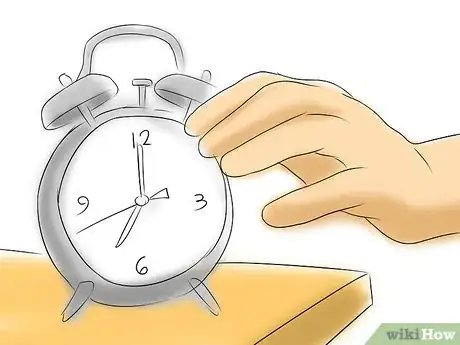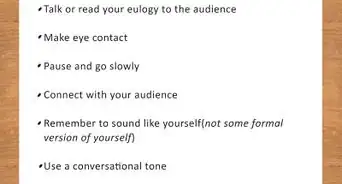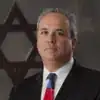This article was co-authored by David I. Jacobson. David I. Jacobson is the founder of Chicago Jewish Funerals, an independent Jewish owned funeral provider that evolved into two funeral homes in the Chicagoland area. With over 30 years of experience serving families, David is a leading expert on Kavod Hamet, the Jewish traditions of honoring and respecting the dead. David is an active funeral director that serves people planning and in need of funerals, lecturing to congregations, community groups, and schools extensively about the values of the Jewish funeral as well as the dying process and the value of one’s legacy.
wikiHow marks an article as reader-approved once it receives enough positive feedback. In this case, several readers have written to tell us that this article was helpful to them, earning it our reader-approved status.
This article has been viewed 168,912 times.
If you’ve been enlisted to officiate a nondenominational funeral, you may be wondering what’s expected of you. It can feel like a massive responsibility, but rest assured that you’ve got this. You were selected for a reason, and a lot of what you’ll need to do is going to be laid out for you. Still, it’s reasonable to want to prepare and we’ll show you how. In this article, we’ll break down everything you need to officiate a nondenominational funeral or memorial service.
Steps
Community Q&A
-
QuestionI heard there was a legal phrase that has to be said at funerals, is this true?
 Community AnswerNo, there is not. What the family wants is usually all that has to be said.
Community AnswerNo, there is not. What the family wants is usually all that has to be said. -
QuestionPsalm 23 is a frequently spoken prayer at a funeral; what are a few more popular or frequently used prayers?
 Community AnswerThe Apostle's Creed, the Rosary, Glory Be, Hail Mary, Our Father, and the Sign of the Cross are good options.
Community AnswerThe Apostle's Creed, the Rosary, Glory Be, Hail Mary, Our Father, and the Sign of the Cross are good options.
Warnings
- Don't forget to get certified and licensed!⧼thumbs_response⧽







































































